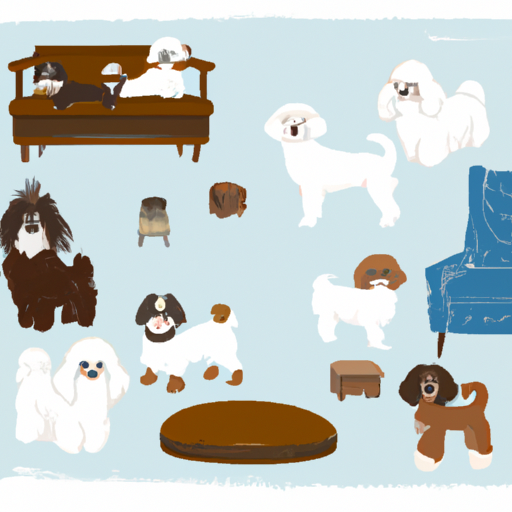There’s a common misconception that all dogs shed. While it’s true that most breeds do lose some hair, some dogs are known to shed far less than others. If you’re a caregiver with a soft spot for canines but dread the idea of having to constantly clean up dog hair, you’re in luck.
H2: Understanding Dog Hair and Shedding
Before we delve into the breeds that don’t shed, it’s important to understand why dogs shed in the first place. Most dogs shed hair as a natural process to replace old or damaged fur. However, the amount and frequency of shedding can vary greatly from breed to breed.
There are three types of dog coats:
- Double Coats: These dogs have a dense undercoat and a longer overcoat.
- Single Coats: These dogs only have one layer of hair.
- Hairless: These dogs have little to no hair.
| Type of Coat | Shedding Level | Examples |
|---|---|---|
| Double Coats | High Level | Husky, German Shepherd |
| Single Coats | Low to Medium Level | Beagle, Dalmatian |
| Hairless | No Shedding | Chinese Crested, Xoloitzcuintli |
H2: Breeds That Don’t Shed
Now that you understand why dogs shed, let’s look at some breeds that are known for not shedding. This is not an exhaustive list, but these breeds are some of the most popular non-shedding dogs.
- Bichon Frise: This small, cheerful breed has a thick curly coat that doesn’t shed.
- Poodle: Available in three sizes (standard, miniature, and toy), poodles have a curly coat that sheds minimally.
- Shih Tzu: Shih Tzus have a long, flowing coat that sheds very little.
- Maltese: These small dogs have long, silky hair that does not shed.
- Yorkshire Terrier: Yorkies have a single coat of straight, silky hair that sheds very little.
H2: Caring for Non-Shedding Breeds
While non-shedding breeds may save you from constantly vacuuming, they do require regular grooming to keep their coats healthy. For example, Poodles and Bichon Frises often require professional grooming every 4-6 weeks. Regular brushing can also help prevent matting and tangling.
H2: The Benefits of Non-Shedding Dogs
Non-shedding dogs are not only great for keeping your home clean, but they’re also a good choice if you or a family member has allergies. While no breed is completely hypoallergenic, dogs that don’t shed produce fewer allergens than those that do.
FAQs
Q: Are non-shedding dogs hypoallergenic?
A: While no dog is 100% hypoallergenic, non-shedding dogs tend to be a better choice for people with allergies.
Q: Do non-shedding dogs require less grooming?
A: Not necessarily. While they may not shed, many non-shedding breeds require regular grooming to keep their coats healthy.
Q: Can a dog breed that typically sheds have a non-shedding dog?
A: It’s unlikely. Shedding is largely determined by the breed’s genetics.
Q: Are there large breeds that don’t shed?
A: Yes, some large breeds like the Standard Poodle and the Afghan Hound are known for minimal shedding.
Q: What is the best way to reduce shedding in dogs?
A: Regular brushing can help remove loose hair and reduce shedding. A balanced diet and regular vet check-ups can also help keep your dog’s coat healthy.



